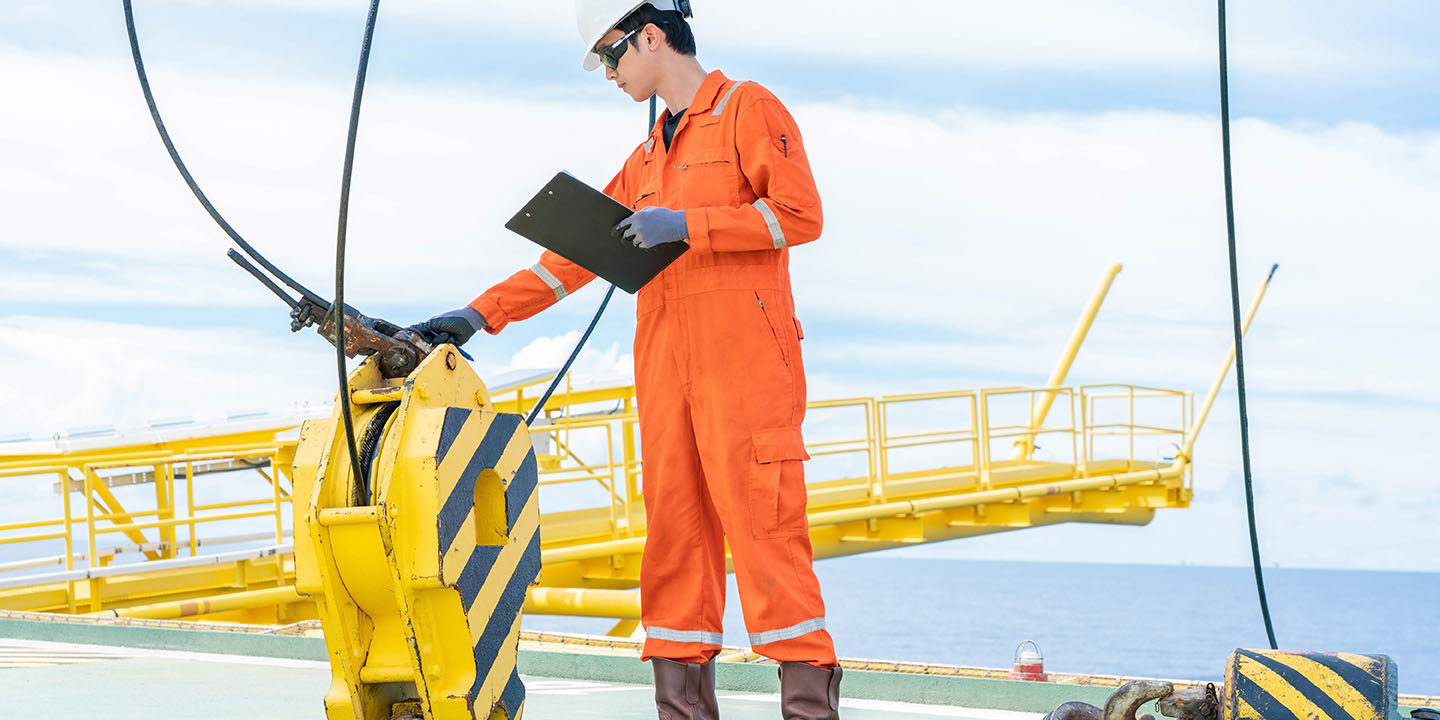Are you fascinated by the world of heavy lifting machinery? Do you thrive in environments where precision and strength converge to move heavy loads safely and efficiently? If so, then becoming a hoist and winch operator may well be the perfect career path for you. As winch specialists, we know just how important it is to have skilled and passionate professionals operating specialist lifting equipment, which is why we’ve put together this guide to provide you with some tips on becoming an operator, discussing all of the skills and experience required to succeed in this exciting trade.
What Does a Hoist and Winch Operator Do?
Before diving into the specifics of what’s needed to become a hoist and winch operator, let’s talk about the role itself first. As the title suggests, hoist and winch operators are tasked with operating various types of lifting equipment, including hoists, winches, cranes and other machinery used to move heavy loads. Whether it’s on construction sites, at manufacturing facilities or on offshore locations, hoist and winch operators play a huge part in safeguarding the movement of materials and equipment, making it an essential role in many different working environments.
Necessary Skills & Training
While there is no one straight path to becoming a hoist and winch operator, there are a number of skills and training courses that will help you gain the necessary experience to get certified and achieve your career goals.
Hands-On Experience
While theoretical knowledge is crucial, nothing beats hands-on experience when you’re learning to master hoist and winch operation. There are a couple of typical routes that trainees take to become fully qualified operators. The first is through a training course at a test centre accredited by the Construction Plant Competence Scheme (CPCS). This accreditation is important because operators will need a valid Construction Plant Competence Scheme card in order to work on-site.
Another common route is to complete a relevant apprenticeship. Apprenticeships, like the NVQ/SVQ Level 2 in Plant Operations, take around 2 years to complete and require a minimum of 30 hours of work per week. Apprentices will divide their time between on-the-job training and centre-based learning in order to complete their qualification.
Both of these training routes provide trainees with invaluable practical experience under the guidance of experienced industry professionals, which allow aspiring operators to apply their knowledge in real-world situations and safely develop their skills in supervised conditions.
Safety First
Because it revolves around heavy lifting with special machinery, hoist and winch operation requires extensive safety measures to keep everyone on site out of harm’s way. So, before anything else, aspiring operators must undergo comprehensive safety training to understand the potential hazards associated with the machinery they intend to use and how to effectively mitigate these risks. This includes knowledge of relevant safety regulations, emergency protocols and the proper use of personal protective equipment (PPE).
Technical Proficiency
Operating a hoist and winches requires a solid understanding of the machinery’s technical parts. Aspiring operators will be expected to familiarise themselves with different types of hoists and winches, their components and how they function. Training programmes will often cover topics such as equipment maintenance, troubleshooting common issues and interpreting technical manuals.
Communication Skills
Like any collaborative working environment, having strong communication skills as a hoist and winch operator will get you far. Clear and consistent communication with your team, supervisors and other on-site personnel helps to coordinate lifts, maintain safety and prevent any mishaps.
Problem-Solving
Hoist and winch operators must also be adept at thinking on their feet and problem solving in high-pressure situations. This might look like adapting to unforeseen challenges, addressing equipment malfunctions or adjusting lift plans on the fly. Regardless of the circumstances, the ability to stay calm and find solutions quickly is a valuable skill to have in this profession.
Certifications & Licensing
In addition to brushing up on your skills and knowledge, aspiring hoist and winch operators will also have to acquire the necessary certifications and licences, depending on the specific fields you’re looking to work within. Certifications will often involve written exams, practical assessments and ongoing professional development to make sure that operators remain up to date with industry standards.
Examples of certifications and licences you might be expected to obtain include:
- Occupational Safety and Health Administration (OSHA) certifications
- A Class 1 or Class 2 driving licence is generally a requirement
- Maritime certifications for offshore work
- Industry-specific certifications for sectors such as construction, manufacturing or entertainment
Continuing Education & Professional Development
Like all trades, the hoist and winch field is ever-evolving, with advancements in technology and safety standards driving the need for ongoing education and training. As a professional in this field, you’ll need to prioritise continual learning and seek out opportunities for professional development to stay on top of best practices. This may involve attending workshops, seminars or conferences, completing advanced qualifications or participating in specialised training programmes offered by equipment manufactures or industry associations.
Joining Professional Associations & Networking
Networking with fellow professionals and staying connected with industry developments is another great way for hoist and winch operators looking to advance their careers. Joining professional associations, such as The Lifting Equipment Engineers Association (LEEA), provides access to resources, networking opportunities and professional development initiatives tailored to the needs of operators in the lifting and rigging industry.
You could even participate in online forums and social media groups, both of which are excellent ways to connect with peers in the trade, share knowledge and experiences and stay informed about job opportunities and industry trends.
Need More Information?
As a leading team of winch operators based in Scotland and Essex, here at Atlas Winch Hire, we love supporting aspiring operators on their journey to becoming fully qualified. If you’d like more information about sourcing training programmes, gaining relevant skills or finding work experience, our knowledgeable team can provide you with guidance to help you on your way. Our hoist and winch equipment is also second to none, and with flexible, competitively priced hire options, you can count on us to provide you with the right machinery to assist with your project as a newly qualified operator. Please call us on 01899 221 577, or email info@winchhire.com for more information about any of the above.








